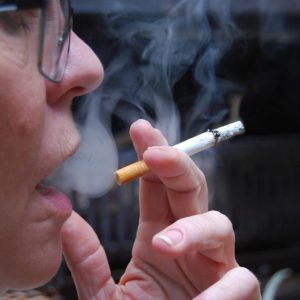The Food and Drug Administration (FDA) is considering whether to cap nicotine levels in traditional combustible cigarettes and to ban the sale of menthols as well. The FDA must respond in court by April 29 to a citizens’ petition to ban menthols by disclosing whether it plans to implement such a policy. And the Biden administration is considering a concurrent requirement to limit the amount of nicotine in all cigarettes sold in the U.S. to levels at which they are no longer addictive.
“It would be historic, it would be groundbreaking and it would save millions and millions of lives,” said the American Lung Association’s Erika Sward. “Reducing nicotine levels is a huge opportunity to help millions of American smokers end their addiction once and for all.”
However, the plan is facing pushback from a diverse group: Public health advocates who believe regulating nicotine is a strategic mistake, and social justice advocates who fear banning menthol cigarettes could lead to more confrontations between police and people of color.
African-American smokers disproportionately buy menthol cigarettes. Various estimates put the percentage of Black smokers who use menthols from 77 percent to as high as 88 percent. Only a quarter of White smokers buy menthols.
Last year, the ACLU joined a coalition letter expressing concerns over legislation banning menthol and other flavored tobacco products. The ACLU statement reads in part:
“While this legislation is a well-intended effort to address health issues associated with tobacco use among youth, we have concerns that a blanket prohibition on menthol and other flavored tobacco products, which will apply to adults, will (1) disproportionately impact people and communities of color; (2) trigger criminal penalties, prioritizing criminalization over public health and harm reduction; and (3) instigate unconstitutional policing and other negative interactions with local law enforcement.”
Meahwhile, some public health professionals warn that however pure the motives, bans are likely to have unintended — and unhelpful — consequences.
Riccardo Polosa, a professor of internal medicine at the University of Catania in Italy, believes nicotine reduction policies are potentially damaging. “The hypothesis that smokers will stop smoking if they do not get their nicotine is not supported by the data. Nicotine is not the sole determinant of the reinforcing effects of smoking.”
David Sweanor, a legal professor at the University of Ottawa in Canada, told InsideSources the FDA should recognize the potential trade-offs these policy changes would require. For instance, the possibility that heavily-addicted smokers will only smoke more cigarettes to satisfy their nicotine cravings.
“Any effort to make cigarettes less viable will require viable alternative products,” said Sweanor. “Otherwise, it will be another disastrous abstinence-only policy. “Moving forward on replacing cigarettes through low-risk alternatives could commence immediately, would follow a very successful history of FDA actions on foods and drugs, and is far less coercive.”
Anti-smoking activists believe prohibition is a workable strategy when it comes to tobacco products and vaping. Some healthcare professionals aren’t so sure, noting the inability to keep far more dangerous products away from willing users. They advocate a mitigation strategy relying on lower-risk products like heat-not-burn tobacco products and vaping, rather than an outright ban. And, they say, marketing the message that the alternatives are just as dangerous as traditional cigarettes is a mistake.
“Another noteworthy topic is regarding decision-making bias that may lead to continued smoking despite the availability of safer alternatives,” Polosa warned. “Misperceptions about combustion-free alternatives are dissuading many smokers from switching.”

